Movie review: 'The Animal Kingdom' (2023)
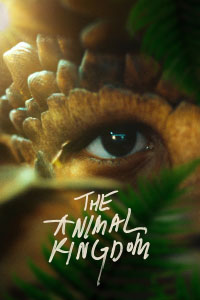 The Animal Kingdom (trailer) is a 128-minute live-action French film released in 2023 (Le règne animal). It's the second movie directed by Thomas Cailley, and co-written with Pauline Munier.
The Animal Kingdom (trailer) is a 128-minute live-action French film released in 2023 (Le règne animal). It's the second movie directed by Thomas Cailley, and co-written with Pauline Munier.
Set in modern-day France, there's been a worrying development: some people are slowly mutating into animals, and society has not been adjusting well. The story follows a small family, Émile (Paul Kircher), a disaffected and conflicted teenager, and his father François (Romain Duris), who move to the south-west of France to be near the family's mother, Lana, who's been in government care ever since she began to change. A road accident makes her fate unclear, adding stress to an already stressful situation. With many people heavily biased against the mutations, Émile finds himself starting to change too.
Despite the fantastical premise, it's primarily a drama about the relationship between Émile and his father. I'd hesitate to call it a coming-of-age film, because Émile isn't going to become an adult - at least, not a human one.
Émile resents not having enough personal freedom, and is in the rebellious teen phase of pointing out his father's hypocritical contradictions. Treating all impositions as bullshit, he's not yet learned to distinguish between life's many different kinds of bullshit, nor does he think about potential consequences from what he chooses to ignore. Still, there are many small moments when Émile and François get along. When Émile begins to change, he keeps it secret - initially resentful, then embracing it, while still clinging to his human life.
François, for his part, has not been able to come to terms with the possible loss of his wife, and is desperate to find her again. Like Émile, he has a rebellious streak and a distrust of authority. Despite this, he finds himself developing a friendship with a Sergeant in the state police force assigned to the area, Julia (Adèle Exarchopoulos), who is both professional and showing exceptional compassion under difficult circumstances.
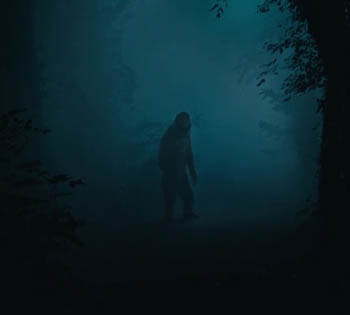 Furry fans of transformation will want to know the finer details of the story. Surprisingly, the film doesn't offer much. Brief lines of dialog imply a larger situation... which is then utterly unexplored. At least that makes it easy to summarize.
Furry fans of transformation will want to know the finer details of the story. Surprisingly, the film doesn't offer much. Brief lines of dialog imply a larger situation... which is then utterly unexplored. At least that makes it easy to summarize.
The cause of the mutations remains unknown; it doesn't appear to be contagious, it's international, and may be increasing. The transformations are slow, taking several months, affecting both adults and children. The species can be any kind of animal, unrelated to local geography. The mutants seem to eventually forget their human name and lose the power of speech. They develop instinctive behavior, better senses and new skills.
Some cooperative human consciousness seems to remain - maybe? It's unclear if the creatures we see in the film have finished fully changing or not. Some mutants are more feral than others; many have a form that retains aspects of their human body, including size, regardless of the typical size of the species.
That being said, as viewers, we don't get to witness the process of transformation, we only see it in different moments of development. Émile's changes are in a very early stage; I deliberately chose the trailer above so as to not spoil what little is shown. He may become a wolf or a bear? Not sure. The film doesn't go for a lot of body horror, but for the squeamish, in several scenes the camera does dwell on a few extended, uncomfortable, bloody close-ups.
A greater question is whether the film is attempting to be a metaphor for something. Honestly, I don't think it is. Some reviewers have tried to draw parallels to the first X-Men film or the recent television adaptation of Sweet Tooth, but I'm not feeling it. You might think it was written as a metaphor for COVID-19... except the film's concept had already been decided on, years before the pandemic. A lot of media in the past decade has been exploring the non-heteronormative experience, but this film isn't tackling identity.
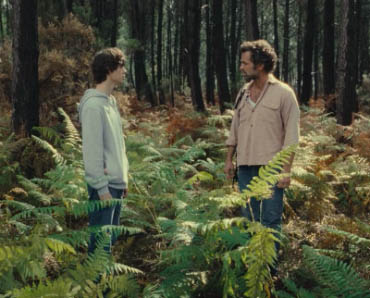 I think, at its core, it's an exploration of fear. How people resist inconvenient alterations to their lives. How some don't want to accept undesirable aspects of society, and remove them from view. There's definitely "othering" at work: the monicker used for the mutants is "bestioles". The direct translation is "critters", but that doesn't get across its derogatory connotations in French - a more accurate English equivalent would be "stupid varmints".
I think, at its core, it's an exploration of fear. How people resist inconvenient alterations to their lives. How some don't want to accept undesirable aspects of society, and remove them from view. There's definitely "othering" at work: the monicker used for the mutants is "bestioles". The direct translation is "critters", but that doesn't get across its derogatory connotations in French - a more accurate English equivalent would be "stupid varmints".
People are afraid of things that are different, and of change. Mutating into animals is a huge change, as well as being drastically different. In the film, French society isn't good at dealing with it. The government and the army are trying to forcefully segregate the mutants. Some people are sympathetic to their plight, while others want nothing to do with them - or want them gone, with a few vigilantes just itching for an excuse.
I get the feeling there's a lot of denial, and that society is going to get pretty unstable at some point in the near future. The mutants need to hunt and eat, and no one's even brought up the topic of winter yet. Other aspects of the film suggest it's exploring compassion and dealing with loss. But only on a superficial level.
For such an interesting premise, the film has surprisingly little to say of great depth. It's a father-son and teen drama story. Apparently at the original screening at the 76th Cannes Film Festival, there was a two-minute epilogue, which was later removed to make things more ambigious. It certainly is.
The acting is very good, the music fits, the cinematography is excellent, and the special effects and animal designs are really well-done. As a furry fan, I wish the creatures were visible for longer! At the same time, at 128 minutes, I felt some parts dragged a bit.
In terms of visuals and acting, I'd rate this an 8.5 out of 10; but for its story, it's more of a 7. Tentatively recommended; it depends how you feel about it. IMDB gives it a rating of 6.8, and Rotten Tomatoes gives it 81/91 (but from a low number of votes). Currently it's available on most of the major U.S. streaming services, in French with English subtitles. It doesn't appear to be available in Canada or the U.K. yet.
I've only recently discovered the TFTuesday Podcast, so I have no idea if they've discussed this film already; if they haven't, I hope they do!
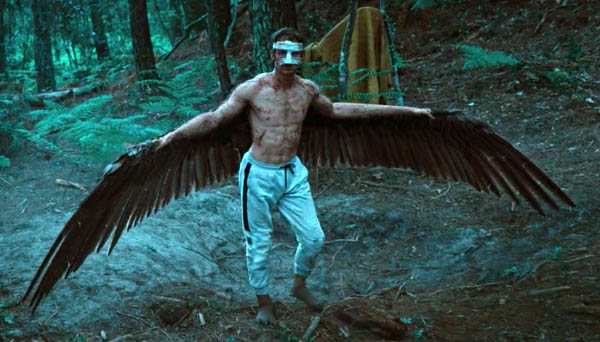
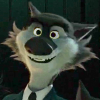
Comments
If it's a metaphor for anything, perhaps the immigrant families whose children grow up to be 'beasts'? France has had a fair bit of hand-wringing over immigration, though it's something of a stereotype and the segregation isn't quite at this level, that I'm aware.
Yeah, I researched that while working on the article. There's been a lot of civil unrest in France - the two most likely possibilities that made international news felt like the 2005 riots and the Yellow vests movement. But the movie's cast is small, doesn't have a lot of obvious minorities, and no one in the film complains about immigrants taking jobs or anything. One business is worried about the mutant situation, that it's making it hard to break even during the tourist season.
Nicely summarized review.
I posted my own review of this movie some weeks ago from a sort of therian angle, and we came to very similar conclusions about it!
https://www.furaffinity.net/view/55637521
That's a good analysis, I hadn't considered the therian angle! So many little unexplored details too - I wondered if Emile's scar came from his mother, and whether Julia was interested in Francois as a love interest, but couldn't because he obviously was still very much holding on to the memories of his wife.
The TFTuesday Podcast reviewed the film! Check out Season 5, Episode 15: Our Trip to the Kingdom (The Animal Kingdom 2023 Review. (May contain NSFW discussions.)
Post new comment